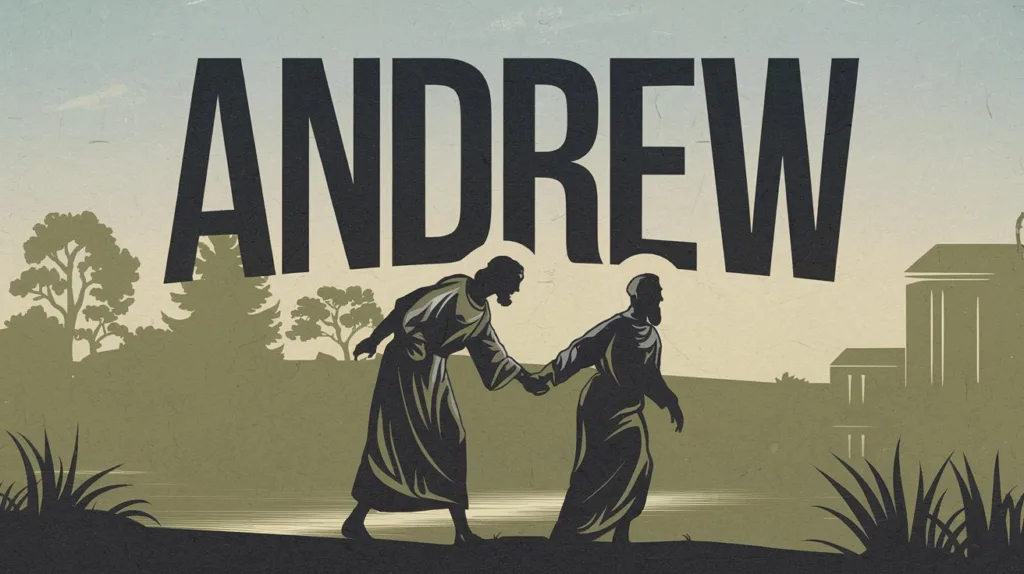This account spans 2 Samuel 13 and is deeply woven into the broader context of David’s household, especially after his own sin with Bathsheba. The seeds of lust, pride, and revenge grow within his children, and we see how personal sin breeds generational consequences.
Who Was Involved?
“Now Absalom the son of David had a lovely sister, whose name was Tamar; and Amnon the son of David loved her” (2 Samuel 13:1).
Here we are introduced to Absalom, David’s third son by Maacah, and his full sister Tamar. Amnon, David’s firstborn son (by Ahinoam), is Tamar’s half-brother. The Word says Amnon “loved” her—but it quickly becomes clear this is lust, not godly love.
“Amnon was so distressed over his sister Tamar that he became sick; for she was a virgin. And it was improper for Amnon to do anything to her” (2 Samuel 13:2).
Amnon’s desires are corrupt, and the Law made it abundantly clear that relations between siblings, even half-siblings, were abominable (Leviticus 18:9). Enter Jonadab, Amnon’s cousin, who is called “a very crafty man.”
“Then Amnon lay down and pretended to be ill; and when the king came to see him, Amnon said to the king, ‘Please let Tamar my sister come and make a couple of cakes for me in my sight, that I may eat from her hand’” (2 Samuel 13:6).
Amnon used David’s love as leverage to trap Tamar.
“Now when she had brought them to him to eat, he took hold of her and said to her, ‘Come, lie with me, my sister’” (2 Samuel 13:11).
Tamar attempts to reason with Amnon, saying,
“No, my brother, do not force me, for no such thing should be done in Israel. Do not do this disgraceful thing!” (2 Samuel 13:12)
“And I, where could I take my shame? And as for you, you would be like one of the fools in Israel. Now therefore, please speak to the king; for he will not withhold me from you” (2 Samuel 13:13).
But Amnon does not listen.
“However, he would not heed her voice; and being stronger than she, he forced her and lay with her” (2 Samuel 13:14).
Tamar’s Righteous Appeal
Before the act, Tamar shows a greater sense of righteousness and regard for the Law than Amnon or Jonadab. She even appeals to his legacy and his standing in Israel. But her wisdom is ignored. And after the act:
“Then Amnon hated her exceedingly, so that the hatred with which he hated her was greater than the love with which he had loved her. And Amnon said to her, ‘Arise, be gone!’” (2 Samuel 13:15).
This reversal is the fruit of sinful lust. Once he satisfied his flesh, he despised her.
“So she said to him, ‘No, indeed! This evil of sending me away is worse than the other that you did to me.’ But he would not listen to her” (2 Samuel 13:16).
Tamar, devastated and dishonored, puts ashes on her head and tears her robe (a sign of mourning and ruined virginity).
“Then Tamar put ashes on her head, and tore her robe of many colors that was on her, and laid her hand on her head and went away crying bitterly” (2 Samuel 13:19).
Absalom’s Silent Fury
When Absalom finds out:
“Has Amnon your brother been with you? But now hold your peace, my sister. He is your brother; do not take this thing to heart.” So Tamar remained desolate in her brother Absalom’s house (2 Samuel 13:20).
Absalom harbored his rage silently for two full years.
“But Absalom spoke to Amnon neither good nor bad. For Absalom hated Amnon, because he had forced his sister Tamar” (2 Samuel 13:22).
King David hears of it but does nothing.
“But when King David heard of all these things, he was very angry” (2 Samuel 13:21).
David’s failure to act here is pivotal. He is passive, likely due to his own guilt from his sin with Bathsheba. His inability to judge his own house results in Absalom taking justice into his own hands.
The Murder of Amnon
Two years later, Absalom hosts a sheep-shearing feast and invites the king’s sons. Initially, David refuses to come but allows the others to go, including Amnon.
“Now Absalom had commanded his servants, saying, ‘Watch now, when Amnon’s heart is merry with wine, and when I say to you, “Strike Amnon!” then kill him. Do not be afraid. Have I not commanded you? Be courageous and valiant’” (2 Samuel 13:28).
The phrase “Be courageous and valiant” echoes Joshua 1:9; it’s mockingly misused here to sanctify murder as justice. His servants obey, and Amnon is killed. When the other sons flee, David receives a false report that all his sons are dead.
“And the king said, ‘All his sons are dead, and not one of them is left!’” (2 Samuel 13:30).
But Jonadab corrects it:
“Let not my lord suppose they have killed all the young men, the king’s sons, for only Amnon is dead. For by the command of Absalom this has been determined from the day that he forced his sister Tamar” (2 Samuel 13:32).
Jonadab knew the whole time (his silence is damning).
“So Jonadab said to the king, ‘Look, the king’s sons are coming; as your servant said, so it is’” (2 Samuel 13:35).
Aftermath and Exile
“But Absalom fled and went to Talmai the son of Ammihud, king of Geshur. And David mourned for his son every day” (2 Samuel 13:37).
“So Absalom fled and went to Geshur, and was there three years” (2 Samuel 13:38).
My Final Thoughts
This tragic account is not merely about sexual sin and revenge: it is about a breakdown of righteousness and justice within the covenant family. Amnon’s lust, David’s silence, and Absalom’s revenge all mirror what happens when leaders fail to execute justice in righteousness. David’s failure to punish Amnon left a vacuum, and Absalom filled it—not with righteous justice, but with blood vengeance. It’s a stark warning to fathers, leaders, and believers: passivity in the face of sin breeds greater destruction.
Absalom, whose name means “father of peace,” became a murderer and eventually a rebel. Though he avenged Tamar, his heart was not surrendered to the Lord’s way. Justice without righteousness leads to further rebellion, and that’s exactly what we see unfold in the chapters that follow.





 Get the book that teaches you how to evangelize and disarm doctrines from every single major cult group today.
Get the book that teaches you how to evangelize and disarm doctrines from every single major cult group today.